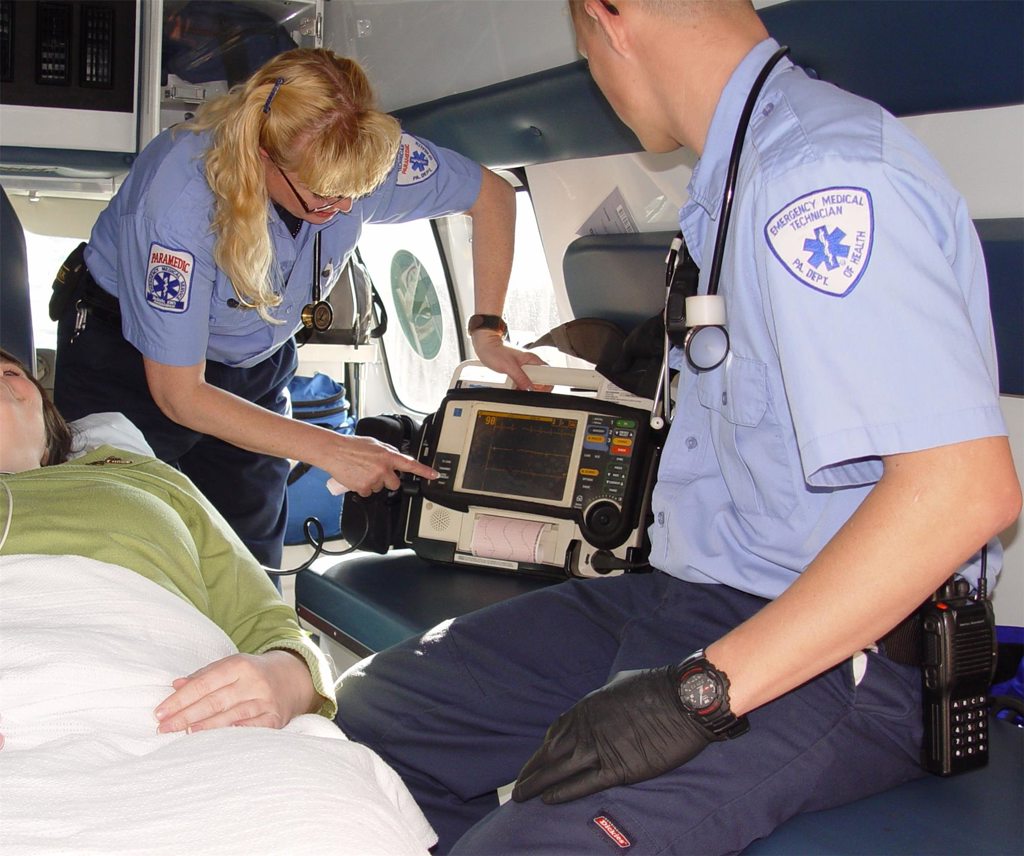
Stroke? Call 9-1-1!
“Without being able to call 9-1-1 a lot of our patients would have different outcomes,” Jolene Barbazzeni, RN and director of the Stroke Center at Penn Highlands DuBois, said.
National Emergency Services Week is May 17 – 23, and ambulance workers throughout the region have been trained to recognize and deal with stroke patients.
“Timely treatment can mean the difference between returning to work or becoming permanently disabled. It can mean the difference between life and death,” Barbazzeni said.
“Stroke and heart attacks are life-and-death emergencies, and treatments available for heart attack and stroke work best when you get to the hospital quickly. Every second wasted is heart or brain tissue lost, increasing the risk for death or disability. So don't delay - get help right away by calling 9-1-1. Emergency medical services, or EMS, providers are equipped with knowledge and resources that can save your life and can get you the treatment you need in the shortest amount of time,” she said.
What are the signs of stroke? Remember:
-
Face drooping. Does one side of the face droop or is it numb? Ask the person to smile. Is the person’s smile uneven?
-
Arm weakness. Is one arm weak or numb? Ask the person to raise both arms. Does one arm drift downward?
-
Speech difficulty. Is speech slurred? Is the person unable to speak or hard to understand? Ask the person to repeat a simple sentence, like “The sky is blue.” Is the sentence repeated correctly?
-
Time to call 911. If someone shows any of these symptoms, even if the symptoms go away, call 911 and get the person to the hospital immediately. Check the time so you’ll know when the first symptoms appeared.
Beyond F.A.S.T., other symptoms include sudden numbness or weakness of the leg, sudden confusion or trouble understanding, sudden trouble seeing in one or both eyes, sudden trouble walking, dizziness, loss of balance or loss of coordination and/or sudden severe headache with no known cause.
“EMS staff’s commitment to patients and to the region is an essential part of improving the stroke patient’s outcome,” Barbazzeni said. “Stroke care is very time restricted and the community is educated regarding calling 9-1-1 when experiencing any signs and symptoms of a stroke. The pre-hospital’s quick response, assessment, minimizing scene time, initiating stroke interventions and early notification to the Stroke Center are crucial steps to providing care within a specific time frame.”
“The local EMS services are dedicated to providing superb, quality care for all members of the communities; their skill, knowledge and dedication is greatly appreciated by members of the community. It is an honor and a privilege to acknowledge their excellent service,” she said.
